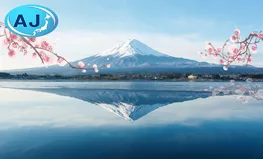- Japan General
- Tokyo General
- Immigration / Government
- Daily Living
- Schools / Education
- Medical / Hospitals
- Emergency / Disaster
- Services in English
- Japanese Business
- Japanese Taxes
- Japanese Laws
- Japanese Language
- Japanese Culture
- Media / Communications
- Shopping
- Food / Recipe
- Fitness / Sports
- Travel
- Transportation
- Driving
- Festivals / Events
- Going around Tokyo
- Religion
- Pets
Japanese Culture
Information on Japanese culture, manners, food, martial arts, and more
There are many aspects and customs that are unique to Japanese culture. Traditionally, Japanese culture has many strict rules of etiquette for every situation from interactions between neighbors to how to eat from a bowl depending on its contents and the size of the bowl.
Below we have made some guides that should help you blend in. Some topics covered are business etiquette, praying manners at shrines and temples, and Japanese funeral manners. We also have guides with information for learning, watching, and experiencing Japanese culture and art.

Setsubun: Welcoming Spring with Ogres, Beans, and Sushi
Famous for bean-throwing antics and parents dressed in ogre costumes to scare children, Setsubun is celebrated on February 3 to mark the first day of spring that lands on February 4. The holiday is a chance to banish evil spirits from your home and bring in good luck for the year ahead, and may be o…
Read more
Restaurant Etiquette in Japan: How to Avoid Serious Faux Pas
From grilled chicken skewers consumed standing in a smoky bar to the finest haute cuisine served course by course by a server clad in a traditional kimono, Japan offers an extensive range of food and dining experiences to fit any budget. However, Japanese restaurant etiquette can vary greatly from…
Read more
Eating Outside in Tokyo: Know the Rules, Avoid a Food Fight
Tokyo is one of the cleanest, most well-kept cities in the world. Despite its staggering population of 15 million, the city consistently tops charts of safest and best places to live on Earth, making it a wonderful place to raise a family, start a business, or invest in property. With that, however…
Read more
Japanese Office Documents
If you have ever worked in a Japanese company, you may have had the experience of being overwhelmed by any in-house documents that you have had to submit on different occasions. These documents include claiming expenses, notifying the office when you are going directly home after meeting with a cli…
Read more
Reiwa, the changing of an era and its affect on the expat community.
In Japan, with the changing of the emperor comes the changing of the era and its name. With the recent abdication of the throne by the current and 125th emperor, Emperor Akihito, the time is almost upon us when the changing of an era will take place. Starting on May 1st of 2019 Japan’s era name wil…
Read more
Dinner with a Geisha: A One-of-a-Kind Tokyo Experience
The geisha is an iconic symbol from Japan that’s widely recognized around the world, yet little understood. A tradition that goes back over 250 years, the geisha arts are gradually disappearing, but there are still places in Japan where one can enjoy an authentic geisha experience. Today, most geish…
Read more
Studying Traditional Japanese Arts & Hobbies in Tokyo
If you have been living in Japan for a while and looking to pick up a traditional Japanese hobby, or maybe you have just arrived, unpacked your stuff and wondering what there is to do in Tokyo that you can't find anywhere else. If so, we're going to share a few popular pastimes from traditional Jap…
Read more
Japanese Kabuki: The Globe Theatre of the East, Revealed!
So, what is Kabuki theatre, really? To the first timer, it is oftentimes remembered as a jumble of color, fast action and archaic language few can understand. Plots are mysterious and centered largely in the Japanese Edo Period (1603–1867). And as you may have heard, the actors are all male! As new…
Read more
Japanese Noh Theatre: Ancient Masked Performance, Unmasked!
Noh is to modern Japanese theatre what Shakespeare is to English theatre, and then some. It is the oldest form of masked theatre (like Kabuki, Noh opts for the “theatre” spelling of the word) in the world. Slow at times, performed in archaic Japanese, and almost exclusively by single sex groups, Noh…
Read more
Takarazuka Revue: Follies, Broadway and Vaudeville Combined!
Takarazuka is an onsen town in rural Hyogo Prefecture. Until the second decade of the 20th century, it was the final stop on an unimportant train line owned by Hankyu Railways where visitors were few and reasons to visit even fewer. That was until Hankyu head Ichizo Kobayashi started to employ troup…
Read more












